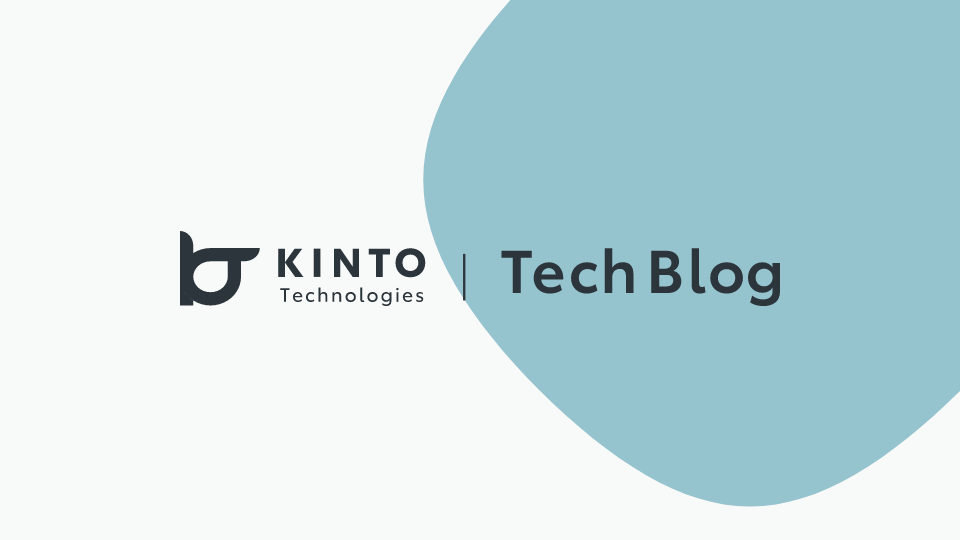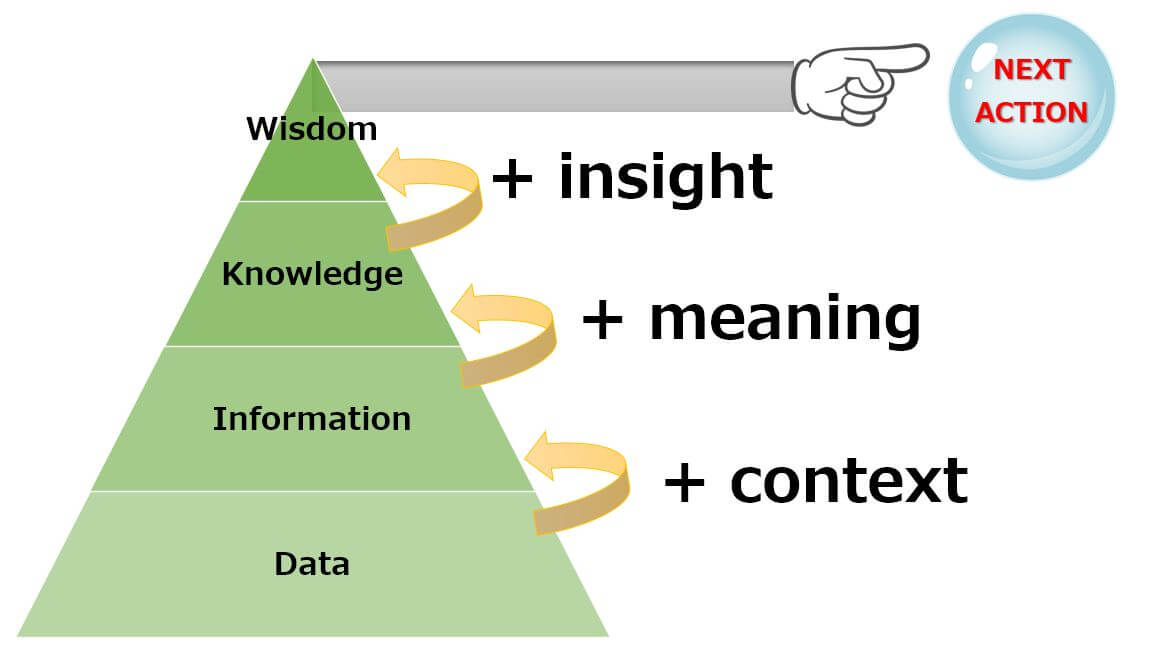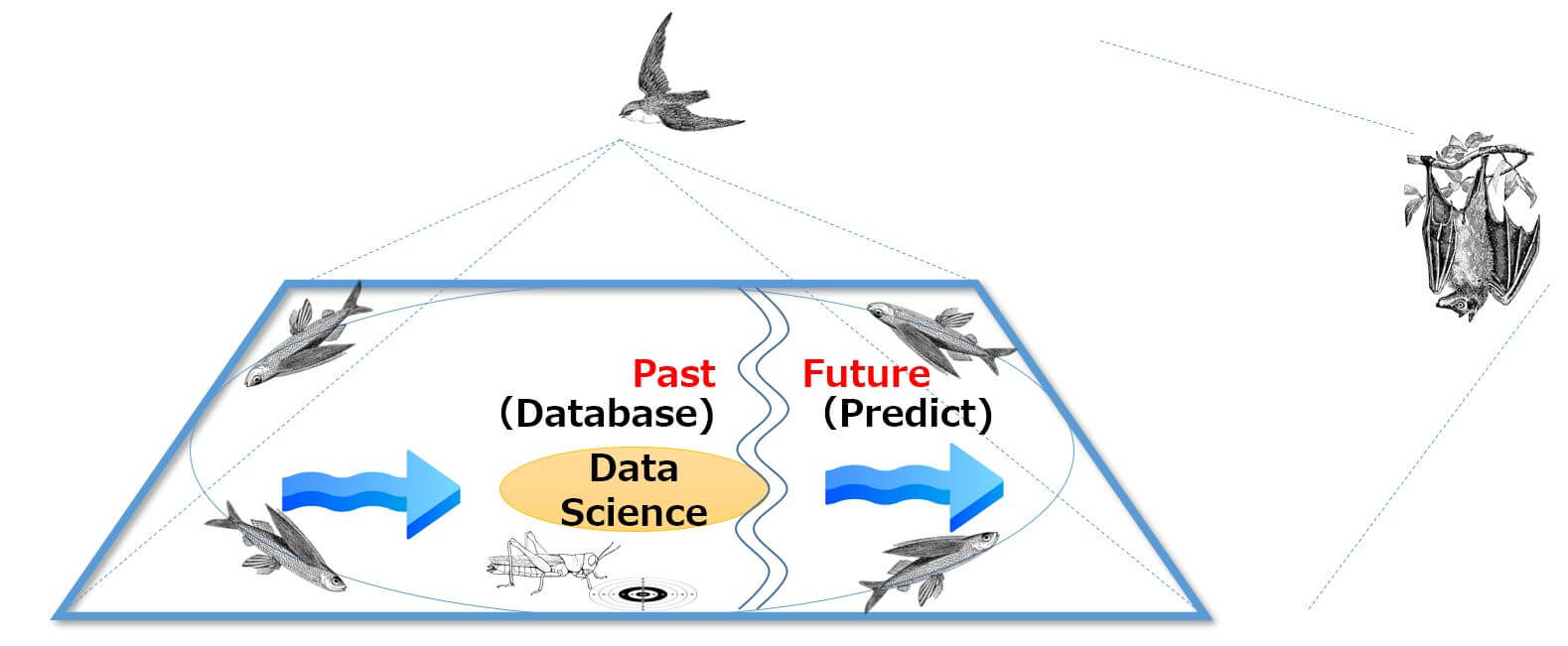KINTOテクノロジーズ 分析グループを紹介します

はじめに
はじめまして、KINTOテクノロジーズで分析グループのマネージャをしています西口です。Tech企業の中に分析グループということで不思議に思われる方もいらっしゃることでしょう。今回はそのあたりのお話をさせてもらいたいと思っています。
分析グループの役割
KINTOテクノロジーズの事業内容は、「デジタル分野における情報システムの設計、開発、運用管理および販売等の情報処理サービス」「企業経営戦略、マーケティング戦略の企画、立案およびコンサルティングに関する業務」となっています。私たち分析グループは後半部分を担っており、日本のKINTO事業はもちろんですがトヨタファイナンシャルサービス株式会社のグループ会社が運営する各種サービスでのデータ利活用にも協業で参画し、データを使ってビジネスに価値をもたらすということを目指しています。
データに価値をもたらすために(分析グループの守備範囲)
DIKWピラミッドをご存じでしょうか。膨大な情報の活用プロセスをData, Infomation, Knowledge, Wisdomの4つの頭文字から名づけられたものとなります。私たちは膨大な量の情報をいかに新たな知識体系に変換していきながらビジネスで価値をもたらすことができるかということにこだわっています。
そのDIKWピラミッドを実現するために、下記に述べる大きく4つのパートに分けて業務に携わっています。

1. データ取得設計・実装
通常、ビジネスデータはユーザーのご注文フローなどでのアクションから「発生する」トランザクションデータと商品管理等のマスタデータというものがあります。私たちはトランザクションもマスタもともに「発生させる」というところも意識しています。近年、個人情報保護の観点もあり、データは取りにくくなってきています。あるタイミング(例えば、ユーザー登録時など)でしか取れないデータというものもあり、そこで取り漏れるとその後取ることができなくなるものも少なくありません。私たちはWEBサイトへ適切に分析タグを設置していくことはもちろんのこと、ユーザーアクションによりデータを発生させる仕掛けや仕組みの企画までも取り組んでいます。
2. データ蓄積
そして発生した/させたデータを迅速に適切な形でデータレイク・データウェアハウスに格納して、次の工程(データ分析)に進めるようにしなければなりません。ここでのこだわりは分析者への負担の軽減です。分析者の「データの取得・加工」にかける工数を必要最小限にして、より分析に注力できるようしたいと思っています。簡単に取得したいデータが取得できないと分析者の思考の進化・深化の障害になりかねません。たとえば、「Aサービスの会員とBサービスの会員を結合したい」といった場合に容易に突合ができるような仕組み作りが重要になってきます。よくメンバーには「受け手のことを考えてパスを出せるように」ということを言っています。
3. データ分析
分析とはある切り口で分けて、それらを比較すること。そこから差を見出すことだと考えています。そして、その差を広げることあるいは縮めることを促進させるのが「施策」だと考えています。私たちはその差を適切な切り口で見つけ出し、ビジネスメンバーに知らせること、さらには施策を提案するところまでが役割です。
これらに必要なスキルとして、メンバーには2つのことを伝えています。ひとつは、「多角的な視点を持つこと」。具体的には、“虫の目、鳥の目、魚の目、蝙蝠の目”でものごとを見ていける力を養ってもらっています。もう一つは「なぜなぜ分析」です。ものごとの本質に行きつくためには何度もなぜを繰り返しながら、正しい因果関係のなかで根本要因を見つけ出すという姿勢が必要です。

4. AI/機械学習
高度なデータ分析の位置づけとしてAI/機械学習を位置づけています。過去のデータから未来を予測することはこの領域です。この分野では、トヨタ自動車未来創生センターともコラボレーションしアカデミックな情報も得ながら、高度なアルゴリズムを使ったモデルの作成も行っています。またビジネス分野におけるAI/機械学習はモデルの見直しは常に行われます。そういったモデルの改修~実装をしやすくなるようなMLOpsの環境構築も必要不可欠で、このあたりも当社プラットフォームグループと協力しながら作り上げていっています。
データに価値をもらたすために(担当・役割)
繰り返しになりますが、特にBtoCビジネスにおいて、データに価値をもたらすためには、適切なタイミングでデータを取るということが非常に重要です。その時しか取れないデータというのがあるからです。そして次の工程で使う人が使いやすいようにデータを貯めるということが次に重要な点です。それらを成し遂げるために、分析グループには次のような肩書のメンバーがそろっています。
1. データアナリスト
KINTOテクノロジーズのデータアナリストは単なるアナリストではありません。WEBサイトやアプリの適切な箇所で適切なタイミングで、また適切な形でデータを取るためのデータ取得設計から関わり始め、タグの設置も担っているからです。データ分析で必要になりそうなデータを事前に想定して漏れなく取っておくという動きは、実際に分析するデータアナリストこそがすべきタスクだと考えているからです。そして発生したデータはデータレイク・データウェアハウスに蓄積されています。そこからBIツールやSQLを使って自由自在にデータを抽出し、適切な切り口でドリルダウンしながら事象の根本要因を見つけ出すことで、予兆の発見や施策の提案などを行っていきます。
2. データエンジニア
データエンジニアにも高いスキルを求めています。事業会社ならではだと思いますが、バックエンドのデータベースからそのまま情報系のデータウェアハウスにデータを格納するだけではなく、データ分析に関わるメンバーが使いやすくなるように配慮してデータを作っていくようにしています。KINTOではどんどん新しいサービスが立ち上がっており、サービス立ち上がりと同時にデータ分析が始められるように、効率な開発のための、開発ガイドライン策定、共通関数化、CI/CDの仕組みなどの構築も担っています。
3. BIエンジニア
ビジネスメンバーにデータを情報に変換して迅速にビジネスの状況を知らせていくことは非常に重要です。またマネジメント層と現場サイドでも見たい情報の粒度は異なります。それらを適切な形で伝えていくためのダッシュボード開発・改修・メンテナンスがBIエンジニアの役割です。

4. データサイエンティスト
KINTOではさまざまなサービスがこれからも展開されていきますが、そこでもAI/機械学習関連はどんどん出てきそうです。数値データはもちろん、画像関連なども幅広い対応が求められます。ビジネス現場ではいくら精度の高いモデルを作ってもそれが使われるとは限りません。マーケターなどに説明して納得してもらう必要性があります。そのためには旧来の統計手法なども適切に使いながら説明を行う必要があり、ビジネスの理解や消費者への興味・関心というところもKINTOテクノロジーズのデータサイエンティストには必須のスキルとなります。言うなれば、KINTOビジネスにおけるデータサイエンティストは、マーケティング・データサイエンティストという役割になってきます。

5. 分析プロデューサー
2022年9月に新しく設けたポジションです。上記1~4のそれぞれの役割を横串でコーディネートするのが分析プロデューサーの役割です。ビジネスサイドでの課題を聞き出してそれを適切な分析問題に置き換えるビジネス力が必要とされます。もちろん1~4のデータに関わる業務の経験・知識も必要とされ高度な能力が要求されます。KINTOテクノロジーズ分析グループが今後さらなるプレゼンスを発揮していくためにも非常に重要な役割です。
分析グループのメンバー・雰囲気・業務の進め方
1. メンバー・雰囲気
非常に難易度の高い業務に日々取り組んでいる私たち分析グループですが、メンバーの経験はそれぞれいろいろです。ただ共通しているのは、データアナリスト、データエンジニア、データサイエンティストなどの柱を持ちながら、さらにデータに関わる領域で幅を広げたいという志向性・モチベーションを持った好奇心旺盛なメンバーばかりです。新メンバーがジョインしたときにはいつもメンバー全員で自己紹介をする時間を設けているのですが、各自の趣味やマイブームは大変ユニークなものとなっています。
2. 業務の進め方
分析グループは、メンバーが東京・名古屋・大阪と3拠点に分かれています。データアナリスト、データエンジニア、BIエンジニア、データサイエンティスト、分析プロデューサー、それぞれのチームがあり、各リーダーのもとで、オンライン・オフラインをうまく使って気軽に相談しながら業務を進めています。
今後、挑戦したいこと
今、私たちの関わっているKINTOおよびその他のサービスについても、サービスを跨いでご利用いただいているユーザーを繋げて分析するということに挑戦したいと思っています。そのためには、分析グループの担う機能・役割が有機的に結びつかないと実現しません。難易度は高いですが、これを実現することでユーザーをより深く捉えていきたいと考えています。
モビリティプラットフォーマーのトップランナーを目指すKINTOにおいては、GPSなどの移動データからWHEREが、お金のデータから、HOW MUCHを捉えることができます。これらのログにWHOとWHENが記されることで、ユーザーの嗜好性やライフスタイルの分析を深めていきたいと考えています。そして、行動の先読みをできるような仕掛け・仕組みの構築、さらには予測モデルなども作っていくというのがこれからの挑戦です。

おわりに
分析グループは、今後もKINTOの新しいサービス発展への貢献、トヨタファイナンシャルサービス株式会社グループへの支援を通してさらなるプレゼンスを発揮していけるように、アンテナを張りながら情報をキャッチし、日々精進していきたいと思っています。
関連記事 | Related Posts
We are hiring!
ビジネスアナリスト(マーケティング/事業分析)/分析プロデュースG/東京・大阪・福岡
デジタル戦略部 分析プロデュースグループについて本グループは、『KINTO』において経営注力のもと立ち上げられた分析組織です。決まった正解が少ない環境の中で、「なぜ」を起点に事業と向き合い、分析を軸に意思決定を前に進める役割を担っています。
データサイエンティスト(マネージャー候補)/データサイエンスG/東京
仕事内容トヨタグループ各社の複雑・戦略的なビジネス課題に対し、データサイエンスを活用して収益性向上・業務効率化を実現するプロジェクトを、他部門と協働しながらグループ全体としての成果最大化を図るマネージャーポジションです。


